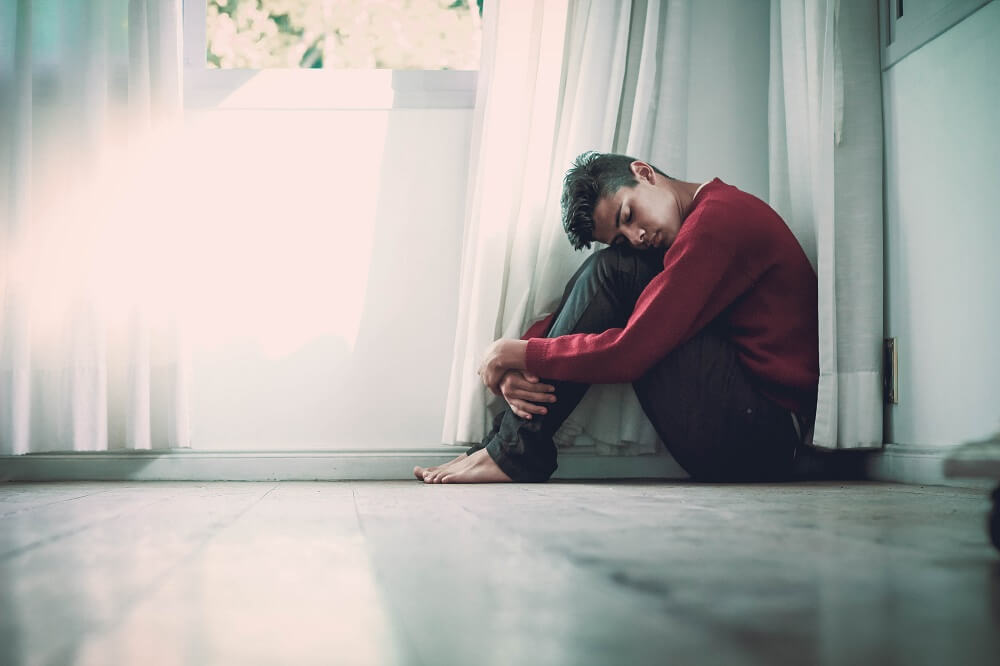Skip To Section
Benzo detox can be tricky. Benzodiazepines, also called benzos, are a type of medication often used to treat anxiety disorders. Around 19% of the population, or 40 million Americans, suffers from an anxiety disorder, which means many Americans take benzos to help. These medications help calm the central nervous system and reduce symptoms of anxiety or panic attacks. While helpful when used as prescribed, they also carry a high potential for misuse and abuse. Long-term use can result in physical dependence on benzodiazepines.
When someone stops taking benzos, it can result in uncomfortable withdrawal symptoms during detox. When that happens, the best course of action is to get help from an addiction treatment center like Footprints to Recovery. Our team of clinical professionals has helped countless others make it through the withdrawal process and on to a brighter future.

What Are Benzodiazepines?
Benzodiazepines are a type of prescription medication used to treat anxiety disorders. They are also used in the treatment of:
- Panic disorders
- Insomnia
- Muscle spasms
- Seizure disorders
They work by enhancing the activity of a neurotransmitter called gamma-aminobutyric acid (GABA) in the brain. This helps calm and reduce excessive neuronal activity in the central nervous system.
The most common benzodiazepines include:
- Alprazolam (Xanax): Prescribed to treat anxiety and panic disorders
- Clonazepam (Klonopin): Prescribed for seizures and panic disorders
- Diazepam (Valium): Prescribed for anxiety, muscle spasms, and alcohol withdrawal symptoms
- Lorazepam (Ativan): Prescribed for anxiety disorders, insomnia, and as a sedative before medical procedures
- Temazepam (Restoril): Prescribed for insomnia
The Benzodiazepine Detox Process
The time it takes to detox from benzodiazepines depends on factors such as:
- The dosage taken per day
- How long you’ve used benzodiazepines
- Any co-occurring mental health or substance abuse disorders you have
Benzo withdrawal can set in fast for heavy users. Some people experience withdrawal symptoms after just a few hours of stopping benzos. For others, a day or two may pass before symptoms peak. The most severe symptoms occur between one and three days after last use and can last up to a week. The most intense symptoms begin to subside after a week or more. Some can remain for a matter of months in what’s known as protracted withdrawal.
The rebound effect is a common symptom of benzo withdrawal. That’s when someone’s anxiety comes back stronger than it did before they began using benzos to feel better. The rebound effect can cause intense anxiety, mood swings, and depression. Professional treatment at a benzo detox center is the best course of action if you’re looking for help. A rehab program can help end benzodiazepine dependency and manage the symptoms of withdrawal.
Self-Assessment: Am I Addicted?
"*" indicates required fields
Contact Form
Would you like help?
"*" indicates required fields
Why Do I Need Medical Detox for Benzodiazepines?
While helpful for anxiety, benzodiazepines can be dangerous, even when taken as directed by a doctor. They can cause several physical and mental health issues due to their effect on the brain and central nervous system.
Benzodiazepines have a sedative effect and can cause drowsiness and muscle relaxation. When taken in high doses or combined with other substances that depress your nervous system, such as alcohol or opioids, they can lead to:
- Unconsciousness
- Respiratory depression
- Coma
- Death
Prolonged use of benzos can lead to physical dependence. This is when your body adapts to the presence of benzos and requires them to function. Quitting cold turkey can result in serious withdrawal symptoms.
The most common symptoms of benzodiazepine withdrawal include:
- Increased anxiety
- Insomnia
- Hypersensitivity
- Difficulty remembering things
- Irritability
- Rapid heartrate
- Tremors
- Sweating
- Mood swings
- Seizures
The most common symptom of benzo detox is increased anxiety. This is known as rebound anxiety. It’s when the original anxiety symptoms the medication was intended to treat come back, often more intense than before.
Using benzos can be dangerous, and withdrawing tends to be uncomfortable. This combination makes having medical supervision while you detox from benzos essential. A team of medical professionals like the one at Footprints to Recovery offers 24/7 monitoring and support and ensures your safety. During benzo detox, you’ll live in our home-like facility so you can feel comfortable while ridding your body of drugs.
What Medications Help with Benzo Detox and Withdrawal?
Medication management is often a key element in benzo withdrawal and detox. Certain medications can assist with the process and reduce withdrawal symptoms. Medication should only be used under the direction of a certified clinician like those at Footprints to Recovery.
Here is how medication is used during benzo detox:
Long-Acting Benzodiazepines
One approach to managing benzodiazepine withdrawal is to switch from a short-acting benzo (such as Xanax or Ativan) to a longer-acting one (such as diazepam or chlordiazepoxide). This allows for a more controlled tapering process. Longer-acting benzodiazepines stay in the system for a longer period, reducing the intensity of withdrawal symptoms.
Medication for Specific Symptoms
Several medications may be prescribed to manage specific withdrawal symptoms during benzo detox. They can include:
- Antidepressants: Selective serotonin reuptake inhibitors (SSRIs) or other antidepressants may be prescribed to manage depression or anxiety symptoms.
- Anticonvulsants: Medications such as gabapentin or pregabalin can help reduce the risk of seizures.
- Sleep Aids: Non-benzodiazepine sleep aids, such as trazodone or sedating antidepressants, can assist with sleep disturbances.
- Beta-blockers: Beta-blockers can help reduce physical symptoms like rapid heartbeat, tremors, and sweating.
Tapering Schedule
Gradual and supervised tapering is often used for benzodiazepine withdrawal. At Footprints to Recovery a healthcare professional will create a tapering plan specific to you. Tapering means reducing the dosage of your benzodiazepines over time to allow your body to adjust to decreasing levels of the drug. This method minimizes withdrawal symptoms and the risk of severe complications during benzo detox.
What Happens After Benzo Detox?
Detox is a crucial part of the recovery process, but it’s not the only step. Following benzo detox, the process of remaining sober starts.
Relapse prevention is different for everyone, but some common steps include:
- Healing the mental and physical damage caused by addiction
- Examining why you started using substances
- Seeking treatment for co-occurring mental health disorders
- Seeking treatment for past trauma
- Identifying triggers that cause drug use
- Establishing a support system
An addiction treatment program can help with every step of the recovery process. The treatments and therapies offered by Footprints to Recovery are research-based and overseen by clinical professionals. Our treatment plans integrate behavioral therapies and holistic approaches for a more personalized approach to sobriety. Our recovery center allows you to find the path to recovery that best suits your needs.
Benzodiazepine Addiction Treatment
Benzo addiction treatment starts with calling the clinicians at Footprints to Recovery. The dangers of benzo detox are too much for you or a loved one to handle on your own. Having professional addiction treatment counselors on your side can make all the difference in recovery.
Footprints to Recovery offers individualized treatment plans that follow our unique levels of care. They include:
- Medical detox: Medical detox is essential to overcoming benzodiazepine addiction. The process ensures all the drugs are out of your system so you can move on to the next steps in recovery. The team of medical professionals at Footprints to Recovery oversees the detox process so you feel safe and comfortable as you turn your life around.
- Inpatient treatment: Residential treatment is the next step after benzo detox for many people. You live at our facility 24/7 and have treatment daily. Many people find the structure and therapies of inpatient rehab helpful as they learn tools to reject drug abuse in the future.
- Partial hospitalization program (PHP): A PHP offers more flexibility than inpatient care, as you are free to live at home or in a sober living home while you take the next step in your addiction recovery. You attend treatment daily that builds on the tools you learned in residential rehab.
- Intensive outpatient program (IOP): An IOP offers even more flexibility than PHP, as you only attend treatment between 9 and 15 hours per week. The goal is to begin the transition back into normal life using the skills you’ve learned in rehab.
- Outpatient rehab: Outpatient rehab involves treatment once or twice per week. The rest of the time, you live and work or go to school as normal. The goal is to use your newfound skills to help cope with triggers in the future. Many of the therapies used in outpatient rehab are designed to help you after you’ve completed formal benzodiazepine treatment.
Does Insurance Cover Benzodiazepine Treatment?
If you’re wondering how to pay for treatment, insurance may be an option. Insurance providers and plans are all unique, but many cover addiction treatment. Working with the team at Footprints to Recovery can help you find a treatment plan that’s covered by your insurance plan. Contact us today for a free consultation and insurance verification.
If you don’t have insurance, that’s okay! Our philosophy is that payment should never stop someone from getting the help they need. Our treatment center admissions team can provide a list of payment options and plans available to you.
Don’t wait to get the help you need for prescription drug addiction. The team at Footprints to Recovery is ready to help you make it through drug and alcohol detox and on the road to recovery.
Our admissions team is available 24/7 to listen to your story and help you get started with the next steps.



